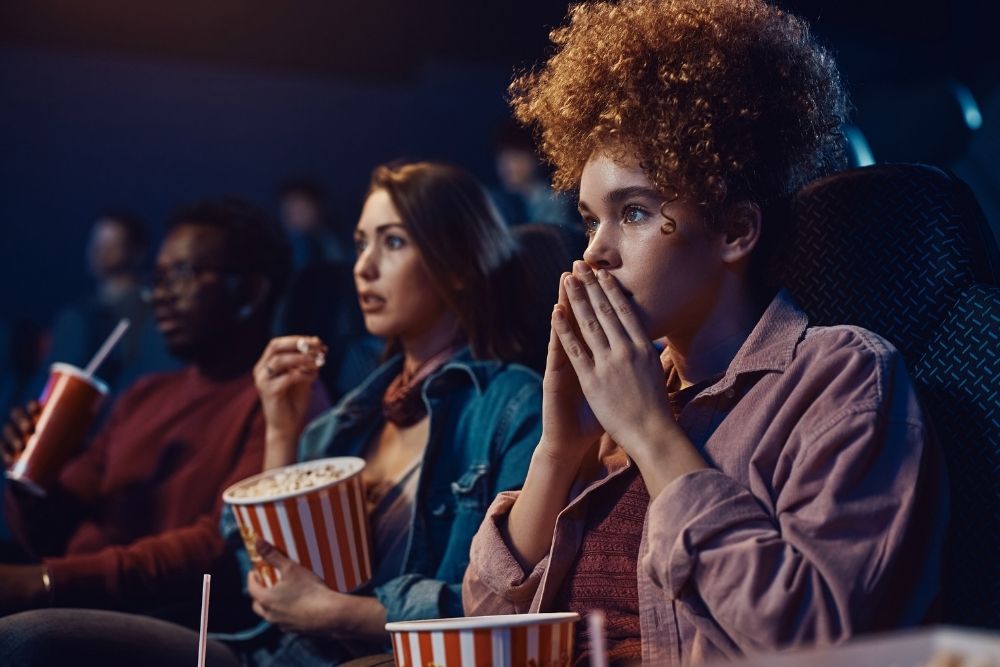There are a number of questions a person can ask that are related to mental illness and scary films. Are the depictions of mental illness movies accurate? Do they increase stigma around mental health disorders? Is it good for us to watch scary movies? At Carolina Dunes Behavioral Health, in Leland, North Carolina, we know that each person is a unique individual, so there may not be one consistent answer to these questions.
Movies That Give False Information About Mental Illness
Just because a movie doesn’t accurately depict mental health, doesn’t mean it’s a terrible movie. Even some well-loved movies don’t provide accurate portrayals of mental health disorders and that can create confusion or fear about mental illness. Some examples of movies that misrepresent mental illness include:
- Silence of the Lambs: Dr. Lector’s antisocial personality disorder is given as a reason for his cannibalism.
- American Psycho: This is another movie that uses antisocial personality disorder to explain the behaviors of a serial killer.
- Psycho: Norman’s dissociative identity disorder (DID, formerly known as multiple personality disorder), which is a form of anxiety disorder caused by trauma, is given as his reason for being a serial killer who takes on the persona of his dead mother.
- Split: This is another movie that depicts people with DID as monsters who kill others.
- The Shining: Jack’s psychosis, triggered by alcohol use disorder, is the reason given for him trying to murder his family.
- Halloween: It’s not actually clear what disorder(s) Michael Myers is supposed to have, as he shows symptoms that are associated with different disorders at different times, as he tries to murder numerous people throughout this series.
Other Negative Results of Scary Movies
For some people, watching scary movies can lead to:
- Nightmares
- Poor sleep quality, which can exacerbate mental health concerns
- Phobias
- Symptoms similar to post-traumatic stress disorder (PTSD) or a triggering of PTSD symptoms for someone who already has that condition
- Anxiety and panic attacks
Not everyone is equally at-risk of these issues, so it’s important to know yourself and your own susceptibility when deciding if you want to watch a horror movie. Your unique lived experiences, personal trauma and even genetics can all play a role in determining how you handle scary movies.
The Good Side of Horror
If we don’t experience long-term impact from watching scary movies and we educate ourselves about mental health disorders so that we can recognize that the depictions of mental illness that we see in movies are often not accurate depictions of people who struggle with mental health conditions, then we may even gain some benefits from watching scary movies, such as:
- Distraction. If a horror movie doesn’t mirror your daily stressors, you might find that it offers some relief by allowing you to briefly escape your usual concerns.
- Catharsis. Some people find it helpful to experience stressful emotions in a safe setting and find that watching a scary movie helps them to release tension and anxious feelings.
- Pseudo-exposure therapy. For some people, watching a movie about something that scares them can be a way to face the fear and gradually move past it.
- Natural high. The adrenaline rush from a scary movie, amusement park ride or other “thrill” can lead to a mood boost for some people.
- Bonding opportunities. If you and your family or friends like watching scary movies together, this can become a way to have fun together and build a sense of community and belonging.
Horror Movie Self-Care
You are allowed to change your mind, after you start a movie, if you decide it’s actually too much for you after all. You may also find it helpful, after you have watching something scary, to have a ritual to help you wind down and reset your mind. This might include:
- Processing the movie with a friend
- Calling someone to distract you by talking about something else for a while
- Reading a book
- Watching a different movie, which is not scary
- A guided meditation to help you relax
At Carolina Dunes Behavioral Health, we help adolescents, adults and families who are working through acute psychiatric symptoms or a mental health crisis. Our inpatient services are focused on helping people over the age of 12 to become more stable, increase their coping skills and transition back home with a plan for long-term support.





